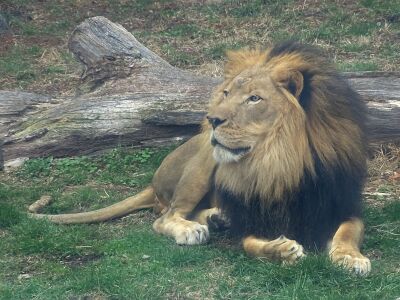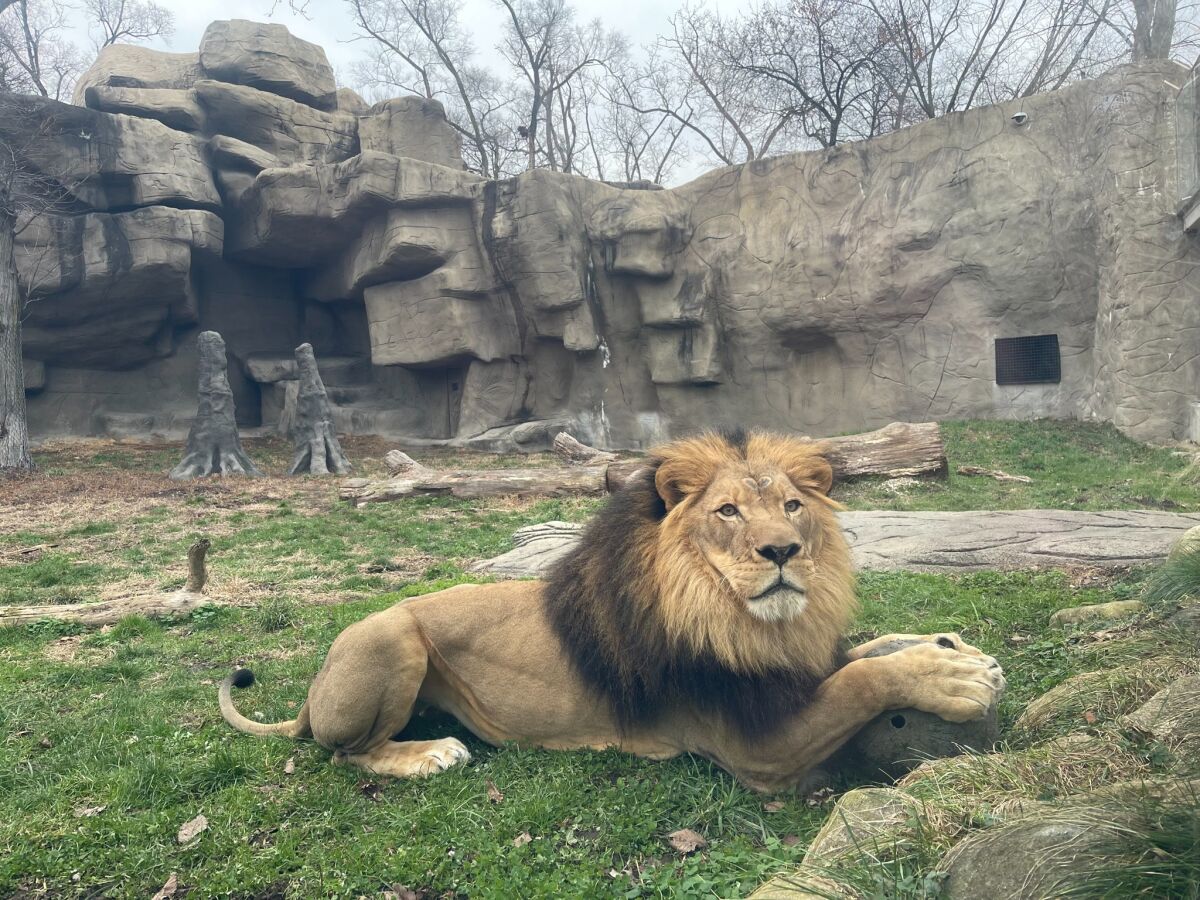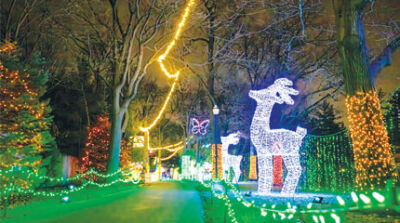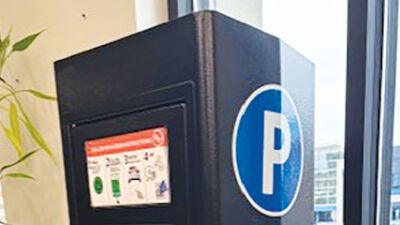
Kalu, the new 9-year-old lion at the Detroit Zoo, was transported from Oklahoma to the Detroit Zoo for the purpose of breeding.
ROYAL OAK — The Detroit Zoo has a giant addition who is sure to turn some heads.
In all his glory, Kalu, a 9-year-old African lion, arrived at the Detroit Zoo Nov. 1 and will soon be living alongside Asha and Amirah, two 9-year-old sister lions currently at the zoo.
Kalu is bringing the fire, as he is described as a playful and exciting addition to the lion enclosure. But, he is here for a specific reason: to breed and create new lion babies.
Kalu was born on Sept. 10, 2015, in Denver, according to mammal supervisor Flo Yates. Kalu was then relocated to Oklahoma, where he grew up with a variety of different lions, females and males, of all ages.
This upbringing makes Kalu a special addition to the Detroit Zoo, and his confidence is quite noticeable, according to zoo staff.
“Kalu was raised in a family of lions, in a pride, so he has experience with all different ages and sexes of lions,” said Tami Brightrall, mammal curator. “He has experience with younger lions, older lions, females and males. So he is what we would call ‘savvy’ in the zoo world, and that just means that he can navigate all social situations.”
Brightrall said that he is a “wonderful” lion to have at the zoo.
“Kalu would be a very good fit to breed with our female lion, Amriah,” Brightrall said. “That's why he was transferred to our zoo, because the cubs of these lions are not related to one another, they (the baby) will be very healthy.”
Kalu and Amirah were matched up by a group of population biologists who carefully analyze genetic data of animals in zoos around the country. That team makes recommendations for the animals who are least related to each other to breed so that the population of different species can be healthy.
“Our females are two sisters, Amriah and Asha; they are very closely bonded,” Yates said. “They have a hard time letting anyone else into their pride. So Kalu was recommended by the Species Survival Plan, which matched him with our females based on personality and his age.”
Brightrall said that the International Union for Conservation of Nature indicated lions as a vulnerable species.
“Lions have habitat loss, there is poaching, there’s trophy hunting, there’s a decline in their prey, so lions in the wild are struggling,” she said. “That doesn’t mean that zoos are going to release lions into the wild, but at least in the zoo, we can make sure that the lions that are in captivity are healthy.”
Additionally, having a beautiful male lion at the zoo is a way to spread awareness about animal preservation, according to Brightrall.
“The lions and the zoos are ambassadors to teach people about why they should care about these animals and why they should, you know, see how beautiful and magnificent they are and how amazing their lives are,” she said. “Lions are very special, and if you see a lion up close, you will never forget it.”
Because Kalu is such a big cat, and lions can be territorial, the zoo staff has had to transition him into his new habitat. Throughout the past few weeks the zoo attendants have been introducing Kalu, Amirah and Asha to make sure they are comfortable with each other before moving into the same enclosure.
As of Dec. 30, the lions are living in two separate areas but can interact through a mesh wall.
“Right now we are seeing them sleep near each other, which is a good sign that they want to be together,” Yates said. “They are also calling across to each other, which are all good signs that things are going well. When we decide if we are comfortable with moving towards the next step, that will be physical introductions.”
The process is slow, but with such dangerous animals the zoo staff must take precautions and have patience while integrating the lions.
Yates said that if given the chance, seeing Kalu in the zoo is a great experience, given Kalu’s giant and wild personality.
“He loves his toys, and he is very protective of his food. His food is the dearest thing to him,” she said. “You will see him interacting with enrichment and toys and stuff. He likes to carry stuff around in his mouth and bounce it around. He is just a fun guy to watch.”
For more information on the arrival of Kalu, visit the Detroit Zoo website at detroitzoo.org.
 Publication select ▼
Publication select ▼


























